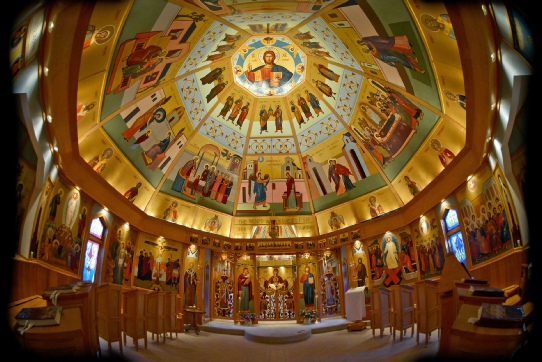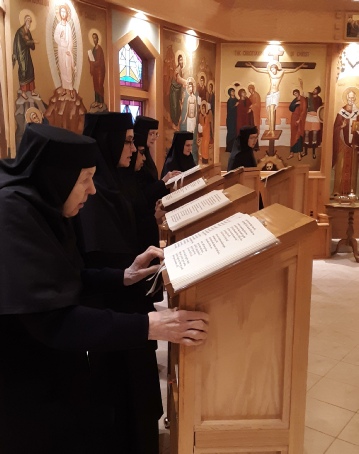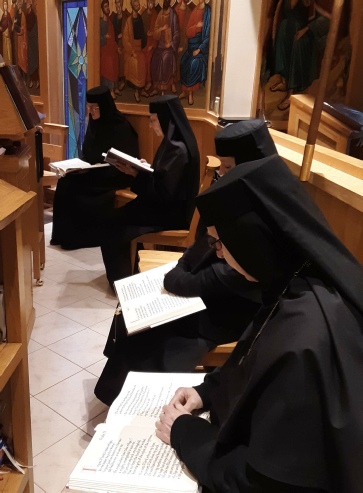




Holy Annunciation Monastery
403 West County Road
Sugarloaf, PA 18249
Phone: 570-788-1205

The Divine Liturgy is a recapitulation of the entire divine economy. In its celebration Christ renews his covenant with the Church and makes his paschal sacrifice sacramentally present. By its very nature the Eucharist is at the center of the consecrated life. By means of the Eucharist we are called to live Christ’s Paschal Mystery, uniting themselves to Him by offering our own lives to the Father through the Holy Spirit. The Eucharistic banquet is a source of peace and unity among the members of the monastic community because through the participation in the one bread and one cup (1 Cor 10:17), the community is united as one body and one spirit. St John Chrysostom provides good advice to the one who desires to be devoted to God: “The highest expression of our sharing in the prayer of Christ is the Divine Liturgy.” Thus, our whole day is centered around the Divine Liturgy.
The Divine Liturgy of St John Chrysostom takes its name from the Saint whose composition it is.
Archbishop John, unjustly condemned, was sent into exile by his peers to die a martyr. But the faithful returned his relics to the Church at Constantinople. The Divine Liturgy was about to begin. His relic was placed on the Bishop’s throne, “and wondrous to relate, it pronounced to the people, ‘Peace be with you all.’” With this opening prayer the Liturgy of St John continued – and for 1600 years down to our day, 2022.
“The divine economy of our God and Savior is the raising up of man from his fallen state and his return from alienation produced by his disobedience to intimacy with God.” ~ Saint Basil the Great ~
Divine Office
The Eucharistic celebration, thanksgiving, and the foretaste of heavenly glory that are celebrated in the Divine Liturgy, are prolonged and renewed all day long by the celebration of the Divine Office.
St. Benedict reverently calls the Divine Office the Work of God saying: “Let nothing be preferred to the Work of God.” This emphasizes the reality of the Divine Office as a school of continual prayer and as an outstanding component of the monastic way of life.
The purpose of the Divine Office is the glory of God.


Psalter
In the monastic rhythm of prayer since the beginnings of monasticism the Psalter occupied a special place of honor. It is a prayer that Jesus himself used on many occasions. This is the prayer that was honored and respected by the early Christian communities (Col. 3:16).
The recitation of the Psalter is an integral part of the Divine Office, and indeed of every liturgical celebration. In our cycle of prayer on all ordinary weekdays the Psalter occupies a prominent place. We pray the entire Psalter during the year within ten day period.











